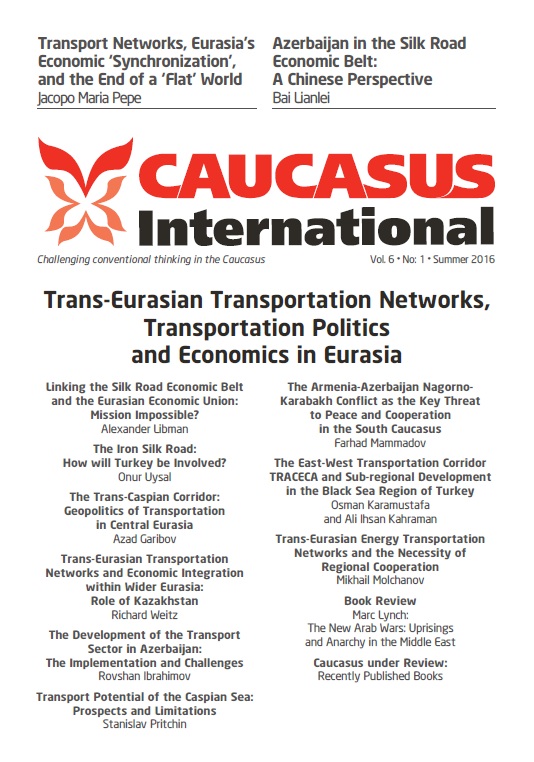The Trans-Caspian Corridor: Geopolitics of Transportation in Central Eurasia
Having reliable and effective transportation networks for easy access to global markets is vital for modern economic development and security, particularly for landlocked states with disadvantageous geographical locations. Thus, the creation of efficient transportation corridors is very important for Azerbaijan and its Central Asian neighbors Kazakhstan, Uzbekistan Turkmenistan, Kyrgyzstan and Tajikistan in terms of obtaining secure and cost effective access to the major export and import markets, and in order to overcome the trade bottlenecks created by the geography. Consequently, ensuring the reliable export of hydrocarbon resources to world markets and establishing cargo transport corridors have been a shared goal for Azerbaijan and the former Soviet republics of Central Asia since the restoration of independence in 1991. Currently, Baku-Tbilisi-Ceyhan oil pipeline, together with Azerbaijani railways, serve as an important export route for Central Asian oil to international markets. The Trans-Caspian partnership for the delivery of Central Asian energy resources to world markets is not limited to oil. There are also ongoing talks about the possibility of transporting Turkmen gas via Azerbaijan as part of the Southern Gas Corridor project. The other priority in regard to the creation of the geopolitically and geo-economically strategic Trans-Caspian corridor is the establishment of a South Caucasus-Central Asia cargo transit route between Asia and Europe. Attracting part of multi-billion EU-China trade to transit through Central Asia and South Caucasus offers a significant revenue source for all of the regional countries, as well as promises to create an effective corridor for their own trade relations with Asian and European countries.
Latest news
- 03/17/2020 Call for Submission: “Non-Alignment Movement and Its Perspective in International Affairs”. Deadline: 1 July 2020 2626 views
Popular articles
- 02/24/2020 The Role of Irredentism in Russia’s Foreign Policy 2536 views
- 02/24/2020 Construction of sub-national identity vis-à-vis parent state: Gagauz case in Moldova 2218 views
- 02/24/2020 The Conflict in Ukraine - The Geopolitics of Separatism and Divergent Identities (Commentary) 2072 views
- 02/24/2020 The Role of the Soviet Past in Contemporary Georgia 2044 views





